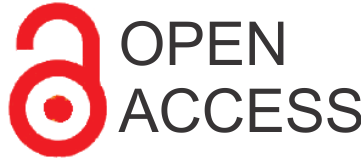Sekolah Unggulan: Pendekatan Pengembangan Kapasitas Sekolah
DOI:
https://doi.org/10.15642/joies.2021.6.1.1-19Keywords:
excellent school, capacity buildingAbstract
One of the major themes in educational effectiveness research is school capacity building. This study investigates the implementation of the International Standard School (SBI) policy in Indonesia which can be seen as an effort of school capacity building improvement in the particular country. Using the program coherence dimension from the capacity-building framework, a qualitative study was conducted in a secondary school located in a small city in West Java, Indonesia, that involved in the program. It is found that the interpretation of the SBI policy was changing, which established international standard classrooms is the salient aspect of the implementation of the policy. It is discovered that becoming an SBI school has positive consequences with regard to the acknowledgment of its quality by the central government, besides the school can collect extra funds from parents with an amount nearly ten times that received from the central government. Document analysis reveals the school's difficulties to reach international requirements with particular to master in English by its teachers.
Downloads
References
Aman, Reformulasi Pembelajaran. Yogyakarta: Pujangga Press, 2012.
Departemen Pendidikan Nasional Republik Indonesia, Panduan Penyelenggaraan Rintisan SMA Bertaraf Internasional. Jakarta: Depdiknas, 2008.
Dapiyana, “Peran Guru Sebagai Model dalam Pembelajaran Karakter dan Kebajikan Moral Melalui Pendidikan Jasmani”. Cakrawala Pendidikan. Ikatan Sarjana Pendidikan Indonesia dan LPM UNY, Jurnal Ilmiah Pendidikan. Vol 37 No.1, (2008).
Denzin, N. K & Lincoln, Y.S.,“The Landscape of Qualitative” Research. Sage Publications. Thousand Oaks, 1998.
Hattie, What are the attributes of excellent teachers? In New Zealand Council for Educational Research, Teachers Make a Difference: What is the Research Evidence?. Wellington: NZCER, 2002.
Hopkins, D & Jackson, D. Building the capacity for leading and learning.InHarris, A. Day, C., Hadfield, M., Hopkins, D., Hargreaves, A. And Chapman, C. Effective Leadership for School Improvement. New York: Routledge Falmer, 2003.
Harris, “Building the Capacity for School Improvement” School Leadership and Management. Vol 21 No. 3 ( 2001).
Hannerz, Cosmopolitans and Local in World Culture. Journal Theory, Culture, and Society, Vol 7 No. 2 (2009).
King, M. B. & Newman, F.M. “Building School Capacity Through Professional Development: Conceptual and Empirical Consideration The International” Journal of Educational Management. 15 No. 2 ( 2001).
Kumaris, “V.Soft Skills and Teacher Accountability in The Context of Quality Education” Journal of Education and Psychological Research. Vol. 3( 2014).
Masduki, Duryat. Paradigma Pendidikan Islam. Jakarta: Alfabeta 2016.
Review. Paper Presented in Internationalisation in Education: Implications for ELT (English Language Teaching) in Indonesia. Jakarta, March (2011).
Rahayu, S & Kita, M. An Analysis of Indonesian and Japenese Students Understanding of Macroscopic and Submicroscopic Level of Representing Matter and Changes. International Journal of Sciences and Mathematics Education. Vol 8 No.1( 2009).
Siswanto, “Pengembangan Model Kultur Sekolah” Jurnal Penelitian dan Evaluasi Pendidikan. Vol 18 No.1 (2014).
Suryani, N. “Manajemen Pembelajaran Berbasis Kultur di Sekolah” Jurnal Paramita. Vol 23 No. 2 (2013).
Sumintono, Bambang. “Sekolah Unggulan: Pendekatan Pengembangan Kapasitas Sekolah” Jurnal Manajemen Pendidikan 2, no. 1 (2013).
Yuliana, Lia. “School Management To Achieve Best and Fun School : A Case Study Manajemen Sekolah Untuk Mencapai Sekolah Unggul”. 1 (2016).
Zamroni, Pedoman Pengembangan Kultur Sekolah. Jakarta: Direktorat pendidikan Umum, 2002.
Downloads
Published
How to Cite
Issue
Section
License
Copyright (c) 2022 Ahmad Syukkur

This work is licensed under a Creative Commons Attribution-ShareAlike 4.0 International License.








